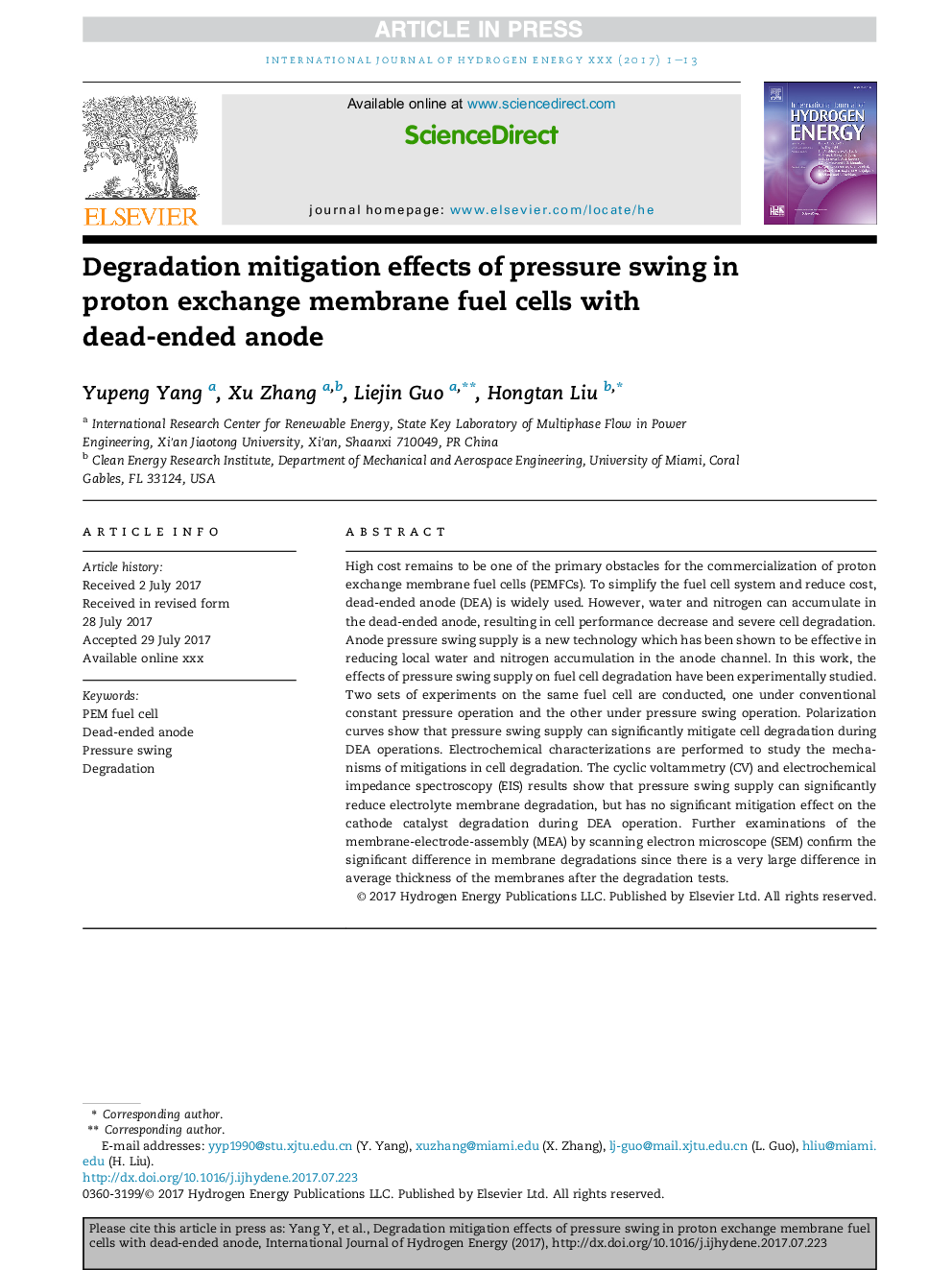| Article ID | Journal | Published Year | Pages | File Type |
|---|---|---|---|---|
| 5145231 | International Journal of Hydrogen Energy | 2017 | 13 Pages |
Abstract
High cost remains to be one of the primary obstacles for the commercialization of proton exchange membrane fuel cells (PEMFCs). To simplify the fuel cell system and reduce cost, dead-ended anode (DEA) is widely used. However, water and nitrogen can accumulate in the dead-ended anode, resulting in cell performance decrease and severe cell degradation. Anode pressure swing supply is a new technology which has been shown to be effective in reducing local water and nitrogen accumulation in the anode channel. In this work, the effects of pressure swing supply on fuel cell degradation have been experimentally studied. Two sets of experiments on the same fuel cell are conducted, one under conventional constant pressure operation and the other under pressure swing operation. Polarization curves show that pressure swing supply can significantly mitigate cell degradation during DEA operations. Electrochemical characterizations are performed to study the mechanisms of mitigations in cell degradation. The cyclic voltammetry (CV) and electrochemical impedance spectroscopy (EIS) results show that pressure swing supply can significantly reduce electrolyte membrane degradation, but has no significant mitigation effect on the cathode catalyst degradation during DEA operation. Further examinations of the membrane-electrode-assembly (MEA) by scanning electron microscope (SEM) confirm the significant difference in membrane degradations since there is a very large difference in average thickness of the membranes after the degradation tests.
Related Topics
Physical Sciences and Engineering
Chemistry
Electrochemistry
Authors
Yupeng Yang, Xu Zhang, Liejin Guo, Hongtan Liu,
